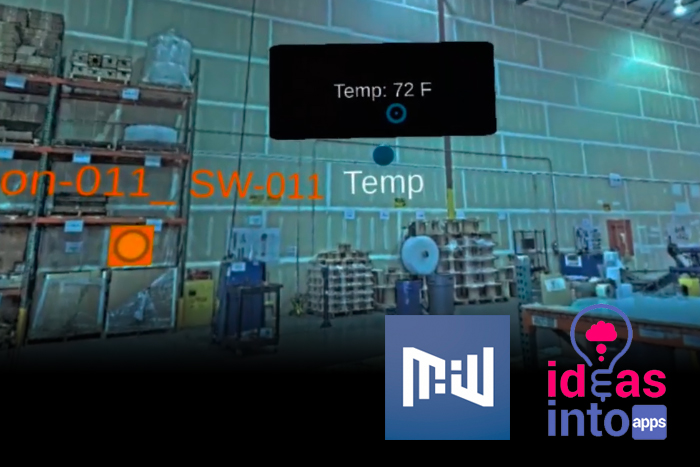There are some innovative uses for virtual reality, but too often the technology comes across as more of a novelty, with gaming and fantasy being the primary focus of use. Dubuque, Iowa strategic systems innovator Design Mill, Inc. and Chicago’s Ideas Into Apps have joined forces to integrate virtual reality with corporate real estate through a technology called Precision Reality.
How Precision Reality works
Using laser scanning and 3D modeling, DMI and II2a can recreate a company’s assets, such as real estate, an assembly plant or an office building, in the digital world. Workers or investors in Chicago could take a tour of a property in Lima, Peru via their laptop, or using a VR headset.
Surveying and equipment manufacturers around the globe have turned to laser scanners for their work, allowing DMI and II2a to line up partnerships with them to scan properties in almost any area.
“If we’re working with a Fortunate 500 company, that has a large portfolio of properties,” said Dave Proctor, Chief Operating Officer for DMI. “We’re a software company, we don’t necessarily want to be a scanning company. That’s where our partners come in, allowing us to scan dozens of properties simultaneously.”
In addition to letting property owners virtually visit locations around the world, Precision Reality has other potential for its users.
“We’re working with large automotive manufacturers and we’ve worked with them to scan a crane base so their team can train on the crane virtually,” said Nathan Greiner, president/founder of DMI. “Those cranes cost millions of dollars each so if they run into things during training, it leads to major downtime. Being able to do that training virtually is a very practical alternative.”
A more cost effective solution
Design Mill, Inc. has been working with virtual reality for over a decade, but it’s only in the last few years that it’s become cost effective for almost anyone to use.
“What allowed us to offer this now is you can buy an HTC Vibe for $800,” Greiner said. “[Cost] should not be a barrier for anyone to use it. That hardware and our processing software have allowed this to come to life.”
There have been trade-offs like the need for server farms to handle the processing and working closely with their scanners to make sure their tech needs are being met.
The future of Precision Reality
Over the next few months, DMI and II2a will roll out new features to make it easier for clients to control their properties in real time, including incorporating live video into the VR.
Down the road, Greiner sees bigger potential for their use of VR.
“Anyone will be able to go anywhere, it’s a real-life Holodeck, in a way,” Greiner said. “It’s going to change the way people work and interact. Our platform is really the basis for that, we’ve already built a foundation.”
“We’re giving people with large real estate portfolios the ability to sit in their office and basically teleport to any of their locations around the world,” Greiner said. “They can make decisions, collaborate and be more informed. That is such a game changer.”
—
Joe Lawler is a freelance reporter based in Des Moines.







One response to “Precision Reality brings virtual reality to corporate real estate”
[…] Silicon Prairie News | Joe Lawler […]